Paul Piwek
Opening up Minds with Argumentative Dialogues
Jan 16, 2023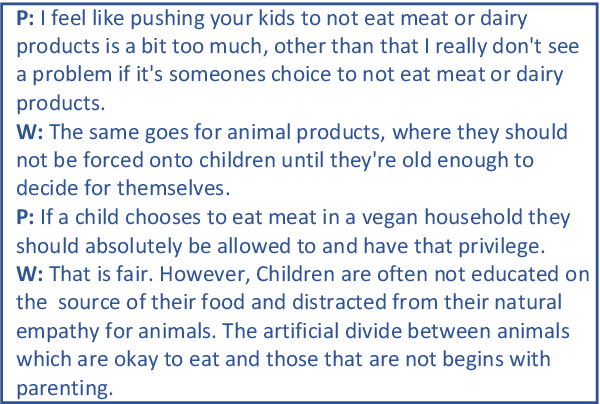
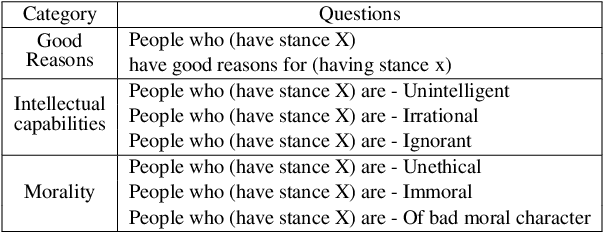

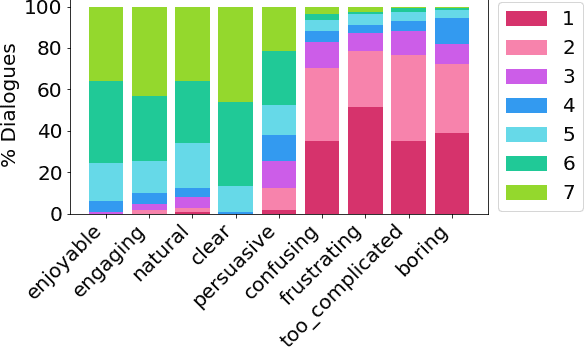
Abstract:Recent research on argumentative dialogues has focused on persuading people to take some action, changing their stance on the topic of discussion, or winning debates. In this work, we focus on argumentative dialogues that aim to open up (rather than change) people's minds to help them become more understanding to views that are unfamiliar or in opposition to their own convictions. To this end, we present a dataset of 183 argumentative dialogues about 3 controversial topics: veganism, Brexit and COVID-19 vaccination. The dialogues were collected using the Wizard of Oz approach, where wizards leverage a knowledge-base of arguments to converse with participants. Open-mindedness is measured before and after engaging in the dialogue using a questionnaire from the psychology literature, and success of the dialogue is measured as the change in the participant's stance towards those who hold opinions different to theirs. We evaluate two dialogue models: a Wikipedia-based and an argument-based model. We show that while both models perform closely in terms of opening up minds, the argument-based model is significantly better on other dialogue properties such as engagement and clarity.
A syllogistic system for propositions with intermediate quantifiers
May 18, 2018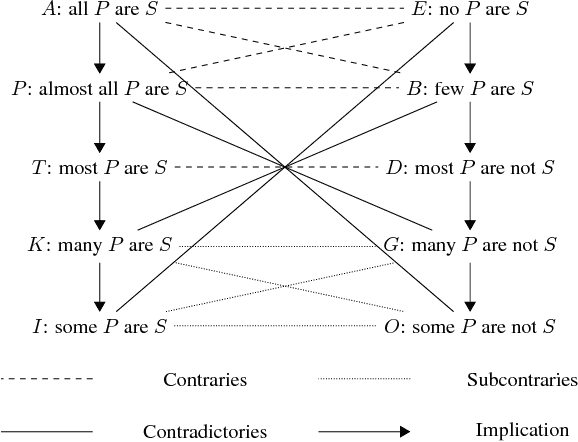

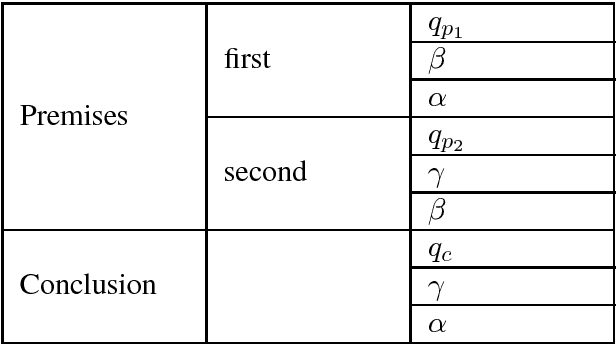

Abstract:This paper describes a formalism that subsumes Peterson's intermediate quantifier syllogistic system, and extends the ideas by van Eijck on Aristotle's logic. Syllogisms are expressed in a concise form making use of and extending the Monotonicity Calculus. Contradictory and contrary relationships are added so that deduction can derive propositions expressing a form of negation.
Dialogue as Discourse: Controlling Global Properties of Scripted Dialogue
Dec 22, 2003Abstract:This paper explains why scripted dialogue shares some crucial properties with discourse. In particular, when scripted dialogues are generated by a Natural Language Generation system, the generator can apply revision strategies that cannot normally be used when the dialogue results from an interaction between autonomous agents (i.e., when the dialogue is not scripted). The paper explains that the relevant revision operators are best applied at the level of a dialogue plan and discusses how the generator may decide when to apply a given revision operator.
Towards Automated Generation of Scripted Dialogue: Some Time-Honoured Strategies
Dec 22, 2003Abstract:The main aim of this paper is to introduce automated generation of scripted dialogue as a worthwhile topic of investigation. In particular the fact that scripted dialogue involves two layers of communication, i.e., uni-directional communication between the author and the audience of a scripted dialogue and bi-directional pretended communication between the characters featuring in the dialogue, is argued to raise some interesting issues. Our hope is that the combined study of the two layers will forge links between research in text generation and dialogue processing. The paper presents a first attempt at creating such links by studying three types of strategies for the automated generation of scripted dialogue. The strategies are derived from examples of human-authored and naturally occurring dialogue.
A Flexible Pragmatics-driven Language Generator for Animated Agents
Dec 22, 2003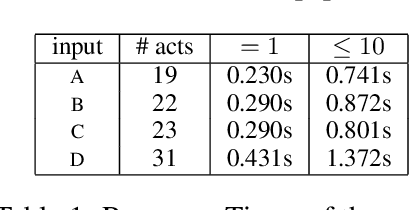
Abstract:This paper describes the NECA MNLG; a fully implemented Multimodal Natural Language Generation module. The MNLG is deployed as part of the NECA system which generates dialogues between animated agents. The generation module supports the seamless integration of full grammar rules, templates and canned text. The generator takes input which allows for the specification of syntactic, semantic and pragmatic constraints on the output.
 Add to Chrome
Add to Chrome Add to Firefox
Add to Firefox Add to Edge
Add to Edge